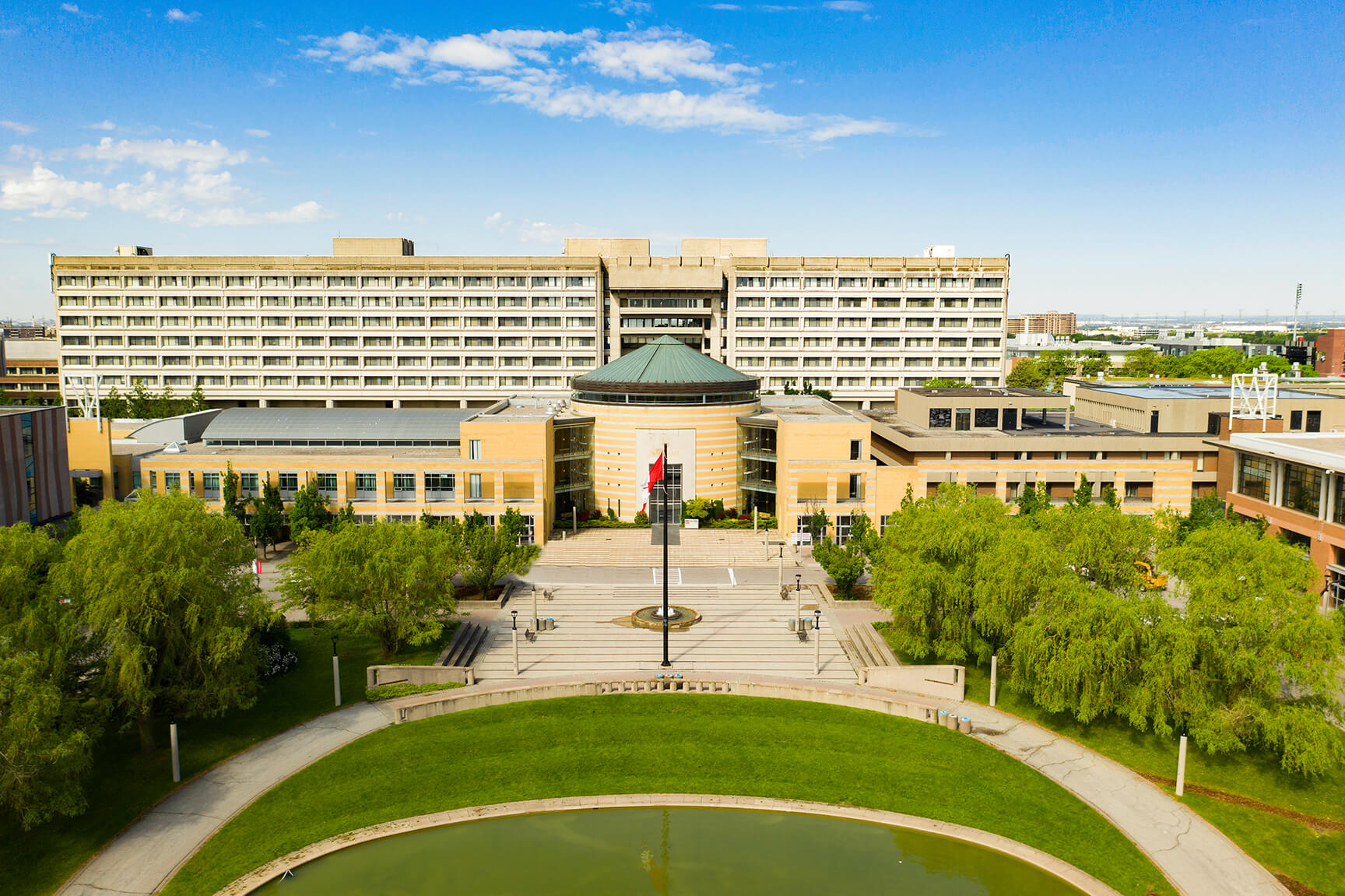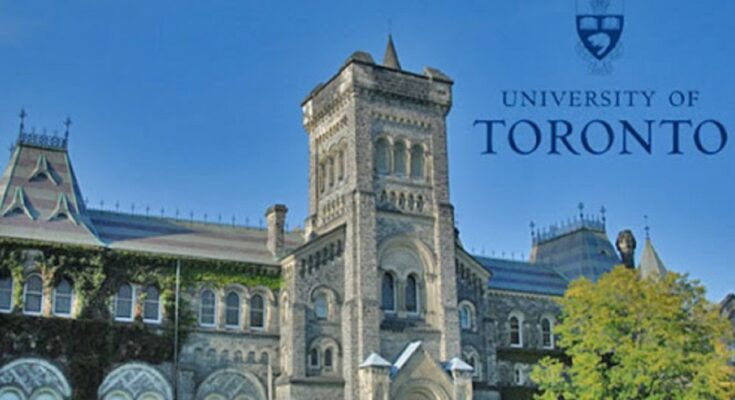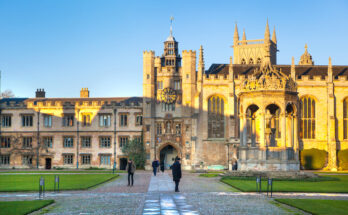Leading Institution for Research and Innovation The University of Toronto (U of T) stands as one of the world’s most prestigious and influential universities, recognized globally for its leadership in research, innovation, and academic excellence. Located in the heart of Toronto, Ontario, Canada’s largest and most diverse city, the university serves as a beacon of discovery, creativity, and societal progress.
With a proud legacy that dates back to 1827, U of T has cultivated a reputation for producing groundbreaking research, fostering entrepreneurial thinking, and educating generations of leaders. Whether in medicine, artificial intelligence, public policy, or literature, the University of Toronto remains at the forefront of shaping the future—both in Canada and around the globe.
A Rich Academic Tradition
The University of Toronto comprises three campuses—St. George (downtown Toronto), Scarborough (UTSC), and Mississauga (UTM)—collectively serving over 97,000 students from more than 160 countries. Its historical legacy is marked by academic freedom, interdisciplinary learning, and the pursuit of knowledge for the public good.
The institution offers over 700 undergraduate programs and 200 graduate programs, supported by 20 faculties and divisions. U of T is especially known for its commitment to both research-intensive scholarship and a holistic student experience, attracting top-tier talent from around the world.
World-Leading Research Impact
U of T is consistently ranked as Canada’s top research university and one of the top 20 in the world. It attracts more than $1.5 billion in annual research funding, more than any other Canadian university.
The university leads in major global rankings in fields such as
- Artificial Intelligence
- Medicine and Biomedical Sciences
- Engineering and Technology
- Social Sciences and Humanities
- Computer Science
Notable Research Contributions
- Insulin Discovery (1921) – U of T researchers Frederick Banting and Charles Best co-discovered insulin, transforming diabetes treatment.
- Stem Cell Research – U of T pioneered the discovery of stem cells, revolutionizing regenerative medicine.
- Deep Learning – Home to Geoffrey Hinton, one of the “godfathers of AI,” U of T helped develop the neural networks that now power modern AI systems.
- CRISPR Gene Editing – Significant contributions to understanding gene-editing tools and their applications in health.
Through its 17 teaching hospitals and more than 100 research institutes, U of T maintains a vibrant ecosystem of innovation and scientific discovery.
Global Recognition and Rankings
The University of Toronto is consistently recognized among the world’s elite universities:
- QS World University Rankings 2025: #21 globally
- Times Higher Education (THE) 2025: #18 globally
- U.S. News Best Global Universities 2025: #1 in Canada, #18 globally
- #1 in Canada for innovation, research funding, and academic reputation
U of T also ranks in the top 5 globally for areas such as AI, pharmacology, psychology, and public health.
Innovation and Entrepreneurship Ecosystem
Beyond academia, the University of Toronto is a dynamic center for entrepreneurship and innovation. U of T is Canada’s #1 university for startup creation, having launched over 650 startups since 2010.
Key Innovation Hubs
- U of T Entrepreneurship – The central hub supporting student, faculty, and alumni startups.
- The Creative Destruction Lab (CDL) – A world-leading seed-stage program for science and tech-based startups.
- The Impact Centre – Bridging the gap between university research and commercial applications.
- MaRS Discovery District – Although independent, MaRS closely collaborates with U of T researchers to scale innovations in health, cleantech, and AI.
These initiatives enable U of T innovators to translate academic discoveries into real-world solutions and global enterprises.
Excellence in Artificial Intelligence
U of T is an undisputed global leader in artificial intelligence (AI), particularly in deep learning. The university is the academic home of Geoffrey Hinton, who played a key role in reviving and advancing neural networks.
The university works closely with the Vector Institute for Artificial Intelligence, one of three Canadian AI institutes under the Pan-Canadian AI Strategy. U of T is also a partner in national and international AI projects spanning ethics, healthcare, robotics, and autonomous systems.

Medical and Healthcare Breakthroughs
The university is also renowned for its pioneering work in medicine and health sciences. Affiliated with a network of hospitals including Toronto General, SickKids, and Princess Margaret Cancer Centre, U of T supports world-class clinical trials, epidemiology studies, and biotechnology research.
Key Medical Achievements
- The first single-lung and double-lung transplant
- Leading work in genomics and personalized medicine
- Advances in cancer immunotherapy and neuroscience
- Global collaborations on pandemic preparedness and response
With the Temerty Faculty of Medicine, U of T continues to be at the forefront of global health education and biomedical innovation.
Sustainability and Environmental Leadership
U of T is actively engaged in research and practices related to climate change, urban sustainability, and environmental policy. The university has committed to achieving net-zero greenhouse gas emissions and integrates sustainability into its operations, curriculum, and student life.
Initiatives Include:
- School of the Environment – Interdisciplinary research on climate science, energy policy, and ecology
- Smart Cities Projects – Investigating how data and AI can improve urban infrastructure
- Sustainable Campus Operations – Including LEED-certified buildings and green procurement
U of T’s leadership in sustainability research influences policy both in Canada and internationally.
Inclusive and Global Community
Diversity, equity, and inclusion are central to U of T’s identity. With over 27,000 international students, the university is a global village that reflects the multicultural richness of Toronto.
The university promotes inclusion through:
- Indigenous Initiatives such as the Centre for Indigenous Studies and Reconciliation Circle
- Access and Outreach Programs to support underrepresented communities
- Global Exchanges and Partnerships with over 160 institutions worldwide
U of T’s vibrant student life includes over 1,000 clubs and organizations, offering opportunities for leadership, cultural expression, and community building.
Campuses and Facilities
The University of Toronto’s three campuses each offer a unique academic and social experience:
St. George Campus (Downtown Toronto)
The historic main campus features Gothic-style architecture, state-of-the-art labs, libraries, and access to Toronto’s bustling city life.
Mississauga Campus (UTM)
Located in a serene, wooded setting west of Toronto, UTM offers programs in business, science, humanities, and more.
Scarborough Campus (UTSC)
A center for experiential learning and co-op education, UTSC serves students in diverse areas, from environmental science to digital journalism.
All campuses are equipped with advanced facilities, libraries, student residences, athletic centers, and innovation labs.
Alumni Making an Impact
The University of Toronto’s alumni network—more than 640,000 strong—includes some of the most accomplished figures in academia, government, business, and the arts.
Notable Alumni Include:
- Lester B. Pearson – Former Prime Minister of Canada and Nobel Peace Prize laureate
- Margaret Atwood – Renowned author and environmental activist
- Roberta Bondar – Canada’s first female astronaut and neurologist
- Michael Ondaatje – Award-winning novelist and poet
- David Naylor – Former U of T President and global health leader
U of T alumni continue to lead with purpose, transforming industries and improving societies around the world.
Strategic Vision for the Future
The University of Toronto’s strategic priorities are guided by its plan: “Toward 2030”, which focuses on:
- Deepening research and global partnerships
- Enhancing inclusive excellence and accessibility
- Sustaining financial strength and infrastructure
- Empowering students as future leaders
- Contributing to a more equitable and sustainable world
These initiatives ensure that U of T remains at the cutting edge of discovery while serving as a force for positive change.
Conclusion
The University of Toronto exemplifies what it means to be a world-class institution: deeply rooted in tradition, yet forward-looking in vision; focused on rigorous research, yet committed to community and inclusivity. As Canada’s top university for research and innovation, U of T continues to push the boundaries of knowledge, tackle society’s greatest challenges, and prepare the next generation of leaders, thinkers, and changemakers.


